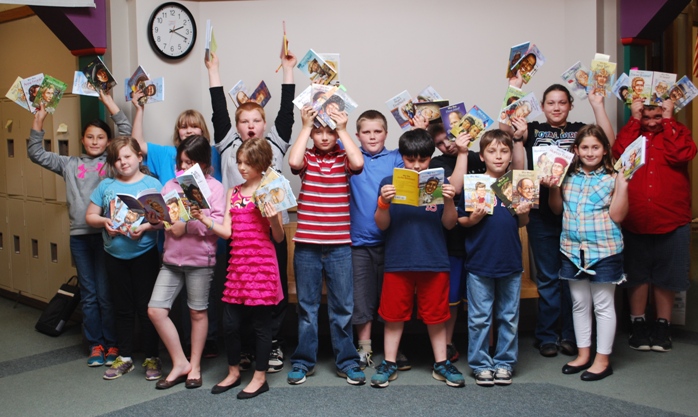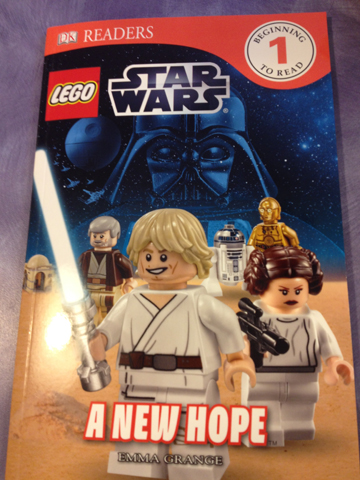 Leveled readers are, in some ways, a bit of a fly in the bookselling ointment. They sell extremely well, which is terrific, but they are also notoriously uneven when it comes to leveling. Teachers, parents, and even many kids are obsessed with the levels (for a variety of reasons, some unavoidable), but every staffer in a bookstore’s children’s department knows that levels are not consistent between publishing houses, and sometimes not even within the same house.
Leveled readers are, in some ways, a bit of a fly in the bookselling ointment. They sell extremely well, which is terrific, but they are also notoriously uneven when it comes to leveling. Teachers, parents, and even many kids are obsessed with the levels (for a variety of reasons, some unavoidable), but every staffer in a bookstore’s children’s department knows that levels are not consistent between publishing houses, and sometimes not even within the same house.
Recently, we received DK’s Star Wars: A New Hope, labeled a “Level 1: Beginning to Read” book. I knew the book would be wildly popular with early readers, and was curious to see how the author, Emma Grange, would translate the Star Wars story into words and sentences appropriate for someone just beginning to read. I think of someone beginning to read as being ready for something along the lines of “See Spot run,” or Hop on Pop, or Sam and the Firefly.
So Star Wars seemed to me to be quite a challenging job to turn into a beginning reader, given the many unfamiliar names and fantasy concepts that would need to be explained to an audience too young to have seen the movies. And the truth is, I doubt it is truly possible to retell this Star Wars adventure in a way that most children just beginning to read could manage on their own.
The book has lines like, “The rebels are a group of people who want to free the galaxy from the Empire,” and “A brave rebel named Princess Leia is determined to defeat the Empire,” and “R2D2 and another droid named C-3PO flee in an escape pod to the planet Tatooine,” and “Luke and Han rescue Princess Leia, but then they fall into a waste disposal unit.”
I think Ms. Grange did an excellent job of distilling the story into a short, easier-to-read form, and I know that kids reading Level 1 books will be deeeeelighted to have the opportunity to chat about Star Wars with their elder siblings. And I know that parents will be happy to help their new readers work through the more complicated words and concepts (the illustrations help there, as well). And yet, does that make the book a Level 1? There are Level 3 books simpler than this one.
With schools and publishers using standards from any of five or so different leveled reading programs, there is bound to be plenty of fluctuation. What this inconsistency in levels means for booksellers is that we need to be very familiar with all of the series we carry, so that we can better match young readers with books at just the right level of challenge.
And that is a challenge and a half for those of us on the sales floor.
The Littlefield Letters
Kenny Brechner - July 24, 2014
I’ll come straight out and admit it. I have a goal for this post. To prove beyond a reasonable doubt that the Common Core has done a wonderful thing for reluctant readers. As we all know the adoption of the Common Core has led to widespread grant writing by schools for purchases of non-fiction books from trade publishers. Publishers have responded to this opportunity by dusting off the non-fiction denizens of their backlists, and acquiring and publishing strong new non-fiction titles. These titles began coming into libraries and classrooms in significant quantities last fall.
Continue reading
Fun Books for Heat Waves
Josie Leavitt - July 22, 2014
The temperature is hitting in the low 90s here in Vermont, and much of the country is also suffering from the first wave of hot summer weather. People stream into the bookstore and the first thing everyone says, “Oh, it’s so nice and cool in here.” Most folks in my neck of the woods don’t have central air-conditioning, so a store that’s 25 degrees cooler than the parking lot is a good, good thing. People seek a different kind of book during a warm stretch and come in with specific things in mind to help them beat the heat.
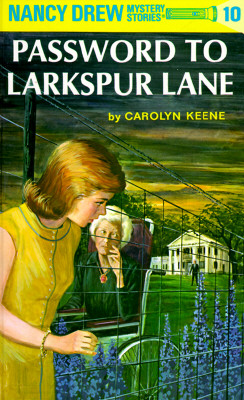 Generally, the first thing people seek are books that “are easy to get into” and “page-turners.” Clearly, the summer heat has effected the brain of the average reader. It’s like the reading experience is as short as the season, so every book must be a winner. Or, maybe everyone only has room for one book in their beach bag and they want a good story. Even the kids say the same thing. Except they cut right to the chase. “I want something fun to read.” They have no judgment about what they need, they just know they want a pleasing book.
Generally, the first thing people seek are books that “are easy to get into” and “page-turners.” Clearly, the summer heat has effected the brain of the average reader. It’s like the reading experience is as short as the season, so every book must be a winner. Or, maybe everyone only has room for one book in their beach bag and they want a good story. Even the kids say the same thing. Except they cut right to the chase. “I want something fun to read.” They have no judgment about what they need, they just know they want a pleasing book.
So, this got me thinking about when I was a kid and what was fun for me to read during the long hazy days of summer. I was one of those kids who skipped the middle grade section and went right for the adult horror books. Stephen King, Peter Straub and Mary Higgins Clark were hugely popular with me. I think one of the reasons I only read horror books in the summer was because it was light so much longer, so there was less chance of reading a truly scary part of a book in the dark of night. Some kids like to be scared these days, and honestly, with some dystopian novels being serious nightmare fodder, kids don’t really seek out horror books.
It seems a lot of kids this summer are coming in wanting funny or realistic books that aren’t sad, The 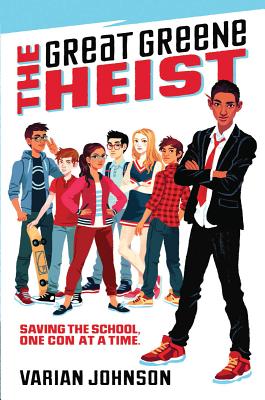 Fault in Our Stars being a notable exception. I love that kids are not leaving the middle grade section too soon. They are craving stories that mirror their lives. This might explain the popularity of the Middle School series by James Patterson with various co-authors, including Vermont’s own Chris Tebbetts. These books, like the Diary of a Wimpy Kid series, offer up a humorous take on the very challenging middle school time. What’s good about these is they shows the challenges of those hard years with accessible characters who make it all seem okay. Mostly, because none of the character’s exploits are actually happening to the reader.
Fault in Our Stars being a notable exception. I love that kids are not leaving the middle grade section too soon. They are craving stories that mirror their lives. This might explain the popularity of the Middle School series by James Patterson with various co-authors, including Vermont’s own Chris Tebbetts. These books, like the Diary of a Wimpy Kid series, offer up a humorous take on the very challenging middle school time. What’s good about these is they shows the challenges of those hard years with accessible characters who make it all seem okay. Mostly, because none of the character’s exploits are actually happening to the reader.
There is something delightful about a mystery in the summer. You have time to unravel the plot and guess who might be guilty of the crime. The Westing Game is always a popular favorite. The Great Brain series is old-fashioned fun, and believe it or not, there are still lots of kids who haven’t read Holes yet. The newest addition to the mystery section is Varian Johnson’s The Great Greens Heist which is just flying off the shelves. It’s also funny to me that the Nancy Drew and Hardy Boys books surge in popularity this time of year.
So, readers, what do you gravitate towards in the summer? And, booksellers, what books are you recommending this summer?
Credit Where Credit is Due
Josie Leavitt - July 21, 2014
I think it’s safe to say that bookstores and credit departments feel like they have an antagonistic relationship sometimes. We both need each other, so being friendly makes more sense. But often the issue of money and paying bills can be fraught on both sides. I have a friend who works in the credit department at a snowboard company and he shared with me some of the things that make him crazy. It was illuminating, to say the least. “If people would just be nice to me when I call about their owing us $10,000 for custom boards, it would be delightful.” He finds customers to be sometimes rude, evasive and generally unpleasant. I can say that I’ve often found some credit reps to be rude and sometimes unpleasant. So, below is a list of things that I think could change the nature of the credit rep/bookstore relationship for good.
– Sending reminders with the statement attached is actually very helpful for me. But do not threaten, directly or implied, that if the check doesn’t get processed by the last day of the month, I’ll go on credit hold.
– I will strive to pay my entire bill by the due date. I know there are stores out there that never miss an end of month bill. But I remember Avin Domintz (former head of the ABA) leading a 2% Solution workshop years ago who suggested taking as long as possible to pay your bills, up to 60 days, to stretch your funds. While I don’t agree with that strategy it brings up the next point.
– Not all publishers will put you on credit hold if you’re two weeks late. Know who these are and pay accordingly.
– Who is your credit rep? Get to know him or her. I am getting to know my Random House rep because I asked her if her workload doubled with the Penguin merger and she said, “Pretty much, yes.” We had a lovely chat and now I’m not afraid of taking her calls because she’s fun. I think credit reps can be demonized because we are at odds with what they represent: our ability to pay bills and the shame that comes with having a hard month and needing to juggle who to pay.
– Be honest with your rep. Rather than avoiding calls or emails, take the bull by the horns and do one of two things: actually pay the bill you’ve been forgetting to or tell them why you can’t pay the whole thing. Offer up a payment schedule and know that you might be on hold for a bit.
– Credit reps can send statements that include all available credits. Baker and Taylor comes to mind as the chief offender here: the monthly email reminders do not include any of the credits. Why? Surely this is easily accessible account info to include.
– This brings me to the thing that bothers me the most: emails that say how much I owe for everything I’ve purchased and not just what’s due by the end of this month. Please don’t make me do math every time I need to pay. If we’re talking about what’s due for July, then don’t include all my open invoices (which can sometimes be things that aren’t due for another month or two) in that email.
– Do not make me send an email every time I want credits applied to my account. Of course I want you to apply the credits! No bookstore is ever going to say: No, please don’t use my credits from returns to pay all or part of my bill, let me write you a check for the entire statement balance.
– Another thing to add to that: do not send me a statement with credits and debits that aren’t tallied up. Again, let your spreadsheet tally things up for me, so I don’t have to add up all the open invoices and then subtract the credits. Having to do that work for you is irritating and it’s often the part of the task that gets interrupted because we all get called away from our desks so much.
– Be nice to your credit rep. They have a hard job. They’re under the gun to collect this money and more often than not, they are extremely reasonable if you actually speak kindly to them and offer a solution. And, they have more control over your books getting shipped out than anyone else. So, it’s helpful to treat them with respect.
– Lastly, pay your bills on time and this won’t even be a problem. But, should you over-extend or have a big school delay their payment to you or you’re waiting for the event returns to get logged in the publisher’s system, be patient and honest.
As more and more publishers merge and we’re writing bigger checks to fewer companies, it’s going to be vital for all of us to have strong relationships with the credit departments. I know I’m planning on spending much of my day today making sure I’m all ready for the end of the month.
Beach Books and More!
Josie Leavitt - July 18, 2014
It looks to be a great weekend for going to the beach here on the East Coast. I’m actually planning to zip up to a friend’s house on the lake and read, swim and generally have fun by not working. I always like to do a thorough check of the galleys that await before I go away. I noticed an envelope on my desk that was soft and inviting. There is always something exciting about the seasonal promo mailings. What does the publisher think we’ll use or need? Will it be helpful? These are clearly subjective issues, as everyone has different tastes, but I think it’s easy to agree that we could all use a beach towel or two, and maybe a beach bag to tote around our books.
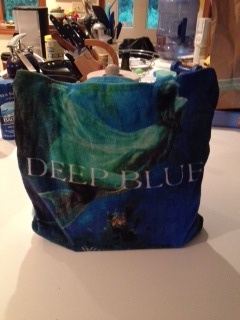 What I didn’t expect, and honestly, have never seen before was a towel that is also a beach bag. Call me simple, but I marveled at this delivery from Hyperion for Jennifer Donnelly’s new book, Deep Blue. The envelope sat on my desk, from yesterday’s mail, I opened it and at first I thought it was a nifty beach bag, but then Sandy suggested that it did something. A bag that does something? I opened it up and it turned into a towel, and back again. Okay, this is clearly simple fun, but still, I was delighted. And it holds a lot.
What I didn’t expect, and honestly, have never seen before was a towel that is also a beach bag. Call me simple, but I marveled at this delivery from Hyperion for Jennifer Donnelly’s new book, Deep Blue. The envelope sat on my desk, from yesterday’s mail, I opened it and at first I thought it was a nifty beach bag, but then Sandy suggested that it did something. A bag that does something? I opened it up and it turned into a towel, and back again. Okay, this is clearly simple fun, but still, I was delighted. And it holds a lot.
Then seemingly in a parade of beach things, we got a 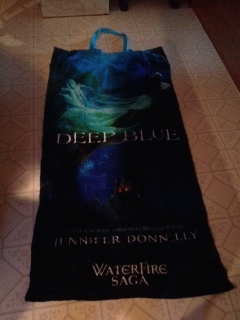 delivery from Scholastic suggesting that I needed to lounge by the water. Their package came with many things. A beach towel, sunscreen (how did they know I was out?), a water bottle ,and a bag. Okay, that is a full set of fun things needed to not only enjoy the summer, but to enjoy it safely. All the necessary items are included, down to a book. Sure, I might complain about reduced co-op funds being available, but getting promo items that are not only useful but fun is always a lovely thing.
delivery from Scholastic suggesting that I needed to lounge by the water. Their package came with many things. A beach towel, sunscreen (how did they know I was out?), a water bottle ,and a bag. Okay, that is a full set of fun things needed to not only enjoy the summer, but to enjoy it safely. All the necessary items are included, down to a book. Sure, I might complain about reduced co-op funds being available, but getting promo items that are not only useful but fun is always a lovely thing.
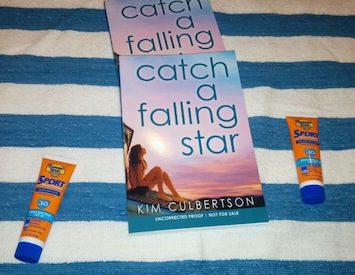 All these beach-going items are making me consider what books to bring to the lake this weekend. In addition To Catch a Falling Star, I’ll be bringing some adult novels with me: the new Sarah Waters galley, The Paying Guests, and also the new Chris Bohjalian, Close Your Eyes, Hold Hands. What will you be reading while you, hopefully, lounge by the water?
All these beach-going items are making me consider what books to bring to the lake this weekend. In addition To Catch a Falling Star, I’ll be bringing some adult novels with me: the new Sarah Waters galley, The Paying Guests, and also the new Chris Bohjalian, Close Your Eyes, Hold Hands. What will you be reading while you, hopefully, lounge by the water?
John D. Rockefeller Speaks Out on the Amazon-Hachette Controversy
Kenny Brechner - July 17, 2014
With the Amazon and Hachette controversy in the forefront of many of our minds, it seemed wise to seek the opinion of someone who could offer a fresh view based on hard-won personal experience. Fortunately, John D. Rockefeller agreed to share his perspective here.
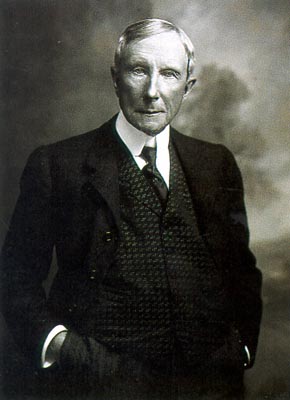 Kenny: Hi John. I appreciate you taking time from your… retirement, to weigh in on on the current societal controversy regarding Amazon.com’s role in the economy and in the publishing world in particular.
Kenny: Hi John. I appreciate you taking time from your… retirement, to weigh in on on the current societal controversy regarding Amazon.com’s role in the economy and in the publishing world in particular.
John: It’s my pleasure, Kenny. Well overdue that someone took the time to make contact with me on this issue. Initiative is never without its reward, my man.
Kenny: Now some people have suggested that Jeff Bezos is out to make you look like a piker in the monopoly department.
John: That is a very foolish statement. Standard Oil was marked by honest, clearly stated aggression with clearly intended results. We sought to do our part in ridding the world of the evils of competition, and helping people to govern themselves more effectively by placing them in the rigid and rigorous structure which mediocre individuals require to better themselves and perform on a higher level. Amazon.com, on the other hand, seeks to extinguish competition through propaganda, pandering to weak human impulses to achieve an ignoble effect, and on cheap dissimulation.
Continue reading
The Post-Privacy Era
Elizabeth Bluemle - July 15, 2014
“We had a strange phone call this morning,” said our staffer David as I walked in the door this morning. “Strange” is not generally a harbinger of good things, so I was alert. He continued, “A gentleman called and asked if our credit card machine stored information about his purchase, because he bought a book about Gatlinburg here, and a couple of days later, a tourism ad for Gatlinburg showed up on his phone. He was very upset.”
This was strange, certainly, but of course had nothing to do with our store. David had tried to reassure the caller by letting him know that our credit card machine, a stand-alone unit connected only to a power source and a telephone line, is essentially a magnet-stripe reader and a keypad. It is completely separate from our point-of-sale system computers. The only information that goes into it is the credit card swipe itself. Even if we’d wanted to violate our customers’ privacy in such a gross and unethical manner, it isn’t possible.
Continue reading
A Book Wagon in Vermont
Josie Leavitt - July 14, 2014
I walked into work on Sunday and saw a massive stack of graphic novels on the counter. The stack was so large I thought that perhaps someone on staff was reorganizing the entire section. Just as I was about to ask about it, a woman in pigtails with a sharp focus added more to it, apologizing for taking over part of the counter. I assured her amassing a large pile of books is never a problem. I asked about the sheer number of graphic novels she was purchasing and she said they were all for the Starksboro READ Book Wagon.
I followed her back to the graphic novel section, which was fairly decimated, and asked more about 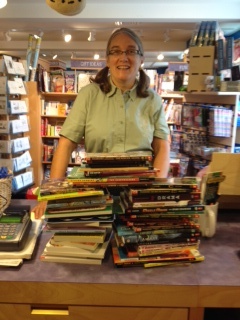 the Book Wagon. Secretly, I’ve always wanted a Flying Pig Book Mobile, so the idea of a Book Wagon was intriguing. The customer, Mary O’Brien, the Book Wagon coordinator, explained the simplicity of the wagon. First let me explain that Starksboro is a lovely small town in rural Vermont, with surprising pockets of poverty and a population of under 1,700. Once a week a volunteer (they rotate weeks) drives to the three trailer parks, three day care centers and the old school house. Children get to pick out one book and keep it. Forever.
the Book Wagon. Secretly, I’ve always wanted a Flying Pig Book Mobile, so the idea of a Book Wagon was intriguing. The customer, Mary O’Brien, the Book Wagon coordinator, explained the simplicity of the wagon. First let me explain that Starksboro is a lovely small town in rural Vermont, with surprising pockets of poverty and a population of under 1,700. Once a week a volunteer (they rotate weeks) drives to the three trailer parks, three day care centers and the old school house. Children get to pick out one book and keep it. Forever.
This is not a lending library on wheels, this is a free bookmobile. Mary explained that the number of free books they’ve given away just keeps climbing, up from 65 at the beginning of the summer to just over 90 last week. Think of the ripple effect of this. Ninety kids took home books to keep last week. Almost 100 children added a book to their personal collection, or started a collection. To own a book when there might not be any in the house is a huge thing. And the Book Wagon team seems to be very attentive to what the kids have been clamoring for. Mary only bought graphic novels and board books. She knows these kids and wants to have books they’re eager for, or have asked about, on the wagon. The wagon raises money for these book purchases through donations and a yearly auction, and they spend it wisely. We helped Mary stretch her budget by offering 20% off all her purchases.
Imagine you’re a kid in one of these seven locations when the book wagon, which sadly is just the volunteer’s car (I was hoping for an ice cream truck with shelving) pulls up: you get books brought to your location. So, if no one can drive you to the library, you can still get books. You get to browse among the titles, many of which are available on the wagon because you said you wanted them, and you get to take one, read it and keep it. The validation for young readers with the READ Book Wagon is just marvelous. The power of the written word is being reinforced every week. And the Book Wagon folks seem to divide their purchases among several independent bookstores, so everyone benefits. So many people wonder about how to get kids to be readers – the Starksboro READ Book Wagon has that all figured out.
Sideline Serendipity
Elizabeth Bluemle - July 11, 2014
While we carry sidelines (i.e., non-book items) from all over the world, it’s a special pleasure to stock toys, stationery, journals, gifts, greeting cards, etc., from local folks.
Every Christmas, my sister gives me either a small calendar or a packet of fine letterpress stationery on the most toothsome paper. They are made by ZoëInk, a Burlington designer whose aesthetic is delicious. The website gives just the tiniest taste of the range of designs available; suffice it to say that they are tasteful, bold, restrained, whimsical, and deeply pleasing to the eye.

Continue reading
“That Book”
Kenny Brechner - July 10, 2014
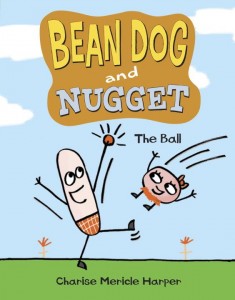
I run at least two ARC review projects every year in 4th-6th grade classrooms, and in every ARC review classroom there is one of them: an ARC that the whole class has been reading and passing around and is on fire about. That book has a fair number ofcommon elements. It is a quick and easy read, usually a tad below grade level, and heavily illustrated, if not a graphic novel. It always has a strong vein of humor.
Most of the time it’s a surprise to me. for example last year I was all wrong about Charise Mericle Harper’s first Bean Dog and Nugget book The Ball. I’m a fan of her work, especially Go! Go! Go! Stop! but I thought these characters were a little disturbing on the visual plane. The kids were enthralled though. Continue reading

